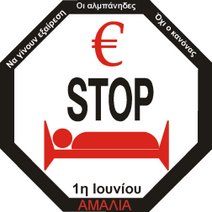McLaren escapes penalty

The FIA decided on Wednesday afternoon not to penalise the McLaren team for suspected 'team orders' implicated during the Monaco Grand Prix. The sport's governing body has studied the McLaren radio messages from the Grand Prix and concluded that the team's communication with its drivers was compliant with the rules. Thus no further action will be taken.
The FIA statement read: "Having studied the radio traffic between Vodafone McLaren Mercedes (McLaren) and its drivers, together with the FIA observer's report and data from the team, it is clear that McLaren's actions during the 2007 Monaco Grand Prix were entirely legitimate and no further action is necessary."
Amid widespread criticism and speculation that McLaren employed team orders to interfere with the result of the Monaco Grand Prix the FIA was prompted to investigate the situation at the start of this week. The McLaren boss Ron Dennis admitted that the team told its drivers Fernando Alonso and Lewis Hamilton to not challenge each other on the track after the first round of pitstops. Just prior to that the team had brought Hamilton, who was running on a longer first stint than Alonso, into the pits early to refuel, which significantly reduced Hamilton's chances of building up a big enough lead to rejoin the track ahead of Alonso after both had pitted. The team then did the same with Hamilton's second stop.
If these actions had been deemed as "team orders which interfere with a race result" (Article 39.1 of the 2007 Formula One Sporting Regulations) then the team could be punished by a points deduction, fine or even as Bernie Ecclestone had suggested; "they could be excluded from the championship."
According to the FIA's findings: "McLaren had fuelled Hamilton for five more laps than Alonso. This allowed Hamilton the option of a one-stop strategy should the safety car have come out during his first stint."
The statement continued: "With no safety car during Alonso's first stint, there was a small but finite risk that it would come out during the five laps before Hamilton had to refuel. This would have put him behind the field and at a significant disadvantage to any car on a full (as opposed to optional) one-stop strategy. The latter cars would be expected to refuel around lap 40 - ie after the safety car had pitted if it came out during Hamilton's extra laps.
"For similar reasons Hamilton was called in early for his second pit stop, thus assuring his second place, with or without a safety car.
"Had the car in front of Hamilton not been his team-mate, McLaren might (probably would) have decided to risk the safety car and let Hamilton run for as long as his fuel load allowed in the hope that he would come out of the pits in the lead after one of his pit stops. There is, however, no obligation on them to take this risk in order to overtake their own car. Indeed it would be foolish to do so."
As for telling the drivers to slow down and not challenge each other on the track, the FIA clarified: "It is standard procedure for a team to tell its drivers to slow down when they have a substantial lead. This is in order to minimise the risk of technical or other problems. It is also standard practice and entirely reasonable to ask the drivers not to put each other at risk."
The FIA also highlighted the team's superior pace as giving it more leeway in the strategy department. "McLaren were able to pursue an optimum team strategy because they had a substantial advantage over all other cars. They did nothing which could be described as interfering with the race result."
may the force be with you


















Δεν υπάρχουν σχόλια:
Δημοσίευση σχολίου